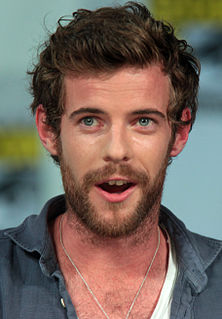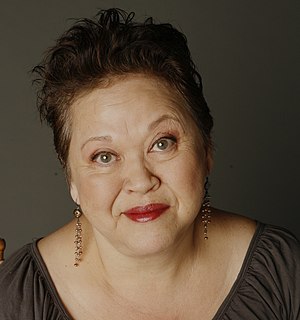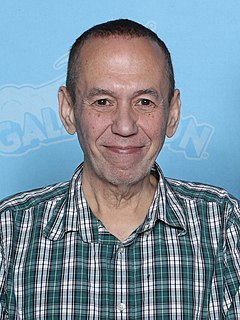A Quote by Bryant H. McGill
Why do we laugh at such terrible things? Because comedy is often the sarcastic realization of inescapable tragedy.
Related Quotes
Tragedy massages the human ego even as comedy deflates it. ... Tragedy pits us against large foes and the trip wire is our own character. ... In comedy we fall afoul of one another. Comedy depends on social life, on our behavior in groups. In tragedy you can observe one human against the gods. In comedy it's one human versus other humans and often one man (or woman if I'm writing it) against her own worst impulses.
We are a nation that has always gone in for the loud laugh, the wow, the yak, the belly laugh, and the dozen other labels for the roll- em-in-the-aisles gagerissimo. This is the kind of laugh that delights actors, directors, and producers, but dismays writers of comedy because it is the laugh that often dies in the lobby. The appreciative smile, the chuckle, the soundless mirth, so important to the success of comedy, cannot be understood unless one sits among the audience and feels the warmth created by the quality of laughter that the audience takes home with it.
I have always felt comedy and tragedy are roommates. If you look up comedy and tragedy, you will find a very old picture of two masks. One mask is tragedy. It looks like it's crying. The other mask is comedy. It looks like it's laughing. Nowadays, we would say, 'How tasteless and insensitive. A comedy mask is laughing at a tragedy mask.'
I have always felt comedy and tragedy are roommates. If you look up comedy and tragedy, you will find a very old picture of two masks. One mask is tragedy. It looks like its crying. The other mask is comedy. It looks like its laughing. Nowadays, we would say, How tasteless and insensitive. A comedy mask is laughing at a tragedy mask.
[Comedies], in the ancient world, were regarded as of a higher rank than tragedy, of a deeper truth, of a more difficult realization, of a sounder structure, and of a revelation more complete. The happy ending of the fairy tale, the myth, and the divine comedy of the soul, is to be read, not as a contradiction, but as a transcendence of the universal tragedy of man. ...Tragedy is the shattering of the forms and of our attachment to the forms...
Comedy is an intellectual affair, and deals chiefly with logic. Tragedy is an emotional affair, and deals chiefly with value. Horace Walpole once said that "life is a comedy to the man who thinks and a tragedy to the man who feels." Comedy is negative; it is a criticism of limitations and an unwillingness to accept them. Tragedy is positive; it is an uncritical acceptance of the positive content of that which is delimited. Since comedy deals with the limitations of actual situations and tragedy with their positive content, comedy must ridicule and tragedy must endorse.

































